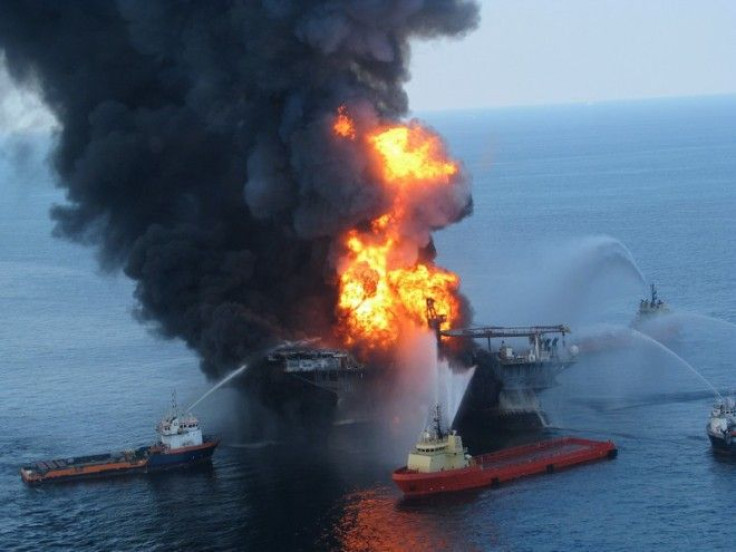BP Gulf Oil Spill Destabilizing Marine Ecosystem, Researcher Says

Two years after the Deepwater Horizon disaster, a deep-sea biodiversity study suggests residual oil from the BP blowout threatens the stability of the entire Gulf of Mexico ecosystem.
Paul Montagna, Harte Research Institute chair and professor at Texas A&M Corpus Christi, is leading a environmental impact study looking at how oil has affected marine life far below the Gulf's surface in sea mud.
The study is being conducted as part of the federal government's case against BP as Judge Carl Barbier in New Orleans determines how liable BP is for its role in the gushing of 5 million barrels of oil in 2010.
Samples of sea mud were taken within six miles of the original BP Macondo well and again 100 miles away, nearer the coast, between the fall of 2010 and the spring of 2011. What Montagna found suggests oil that has trickled down to the ocean floor is killing off species of invertebrate crustaceans that live within the mud.
Montagna could not quantify the amount of biodiversity lost, because his findings will be presented in court to assess BP's impact on the environment, but he said what is happening will eventually destabilize the Gulf of Mexico's ecosystem if it continues.
Here's why: Organisms that live in the mud on the ocean floor are the base of the marine food chain. Those that live in the mud are eaten by the bottom dwellers that live on the surface of the ocean floor. Those bottom dwellers in turn feed the fish that prey off the ocean floor, and they in turn are eaten by bigger fish higher up the food chain.
They are good sentinels, Montagna said of the mud organisms. They are like the canaries of the ocean.
If the bottom dwellers are healthy, it is a good indication the rest of the food chain is as well, but having oil sifting through the ocean mud is threatening to destabilize the entire food web for a long time, because the bottom of the ocean is cold and dark, Montagna said.
Organisms that live down there are almost entirely dependent on food and other organic materials that sink down from higher levels of the ocean. Because the water is cold, the rate of decomposition slows down, providing food for multiple species from bottom dwellers like crabs to worms that live in the mud.
Oil that settles on the ocean floor is not likely to decompose before it is consumed by the very same organisms that think the oil is food, Montagna said.
When you have decreasing biodiversity, the entire system becomes less stable, Montagna said.
On April 20, 2010, an explosion and fire on the BP Deepwater Horizon oil platform caused the rig to sink causing the worst environmental disaster in U.S. history. Roughly 5 million barrels of oil gushed into the Gulf.
Roughly 25 percent of the oil spilled has yet to be accounted for, Montagna said, who added he suspects most of it has now found its way onto the ocean floor.
The problem now, will be to determine if and how the ocean floor can be cleaned up, because overtime, more of the oil will either be consumed by marine life or buried by drifting sediment.
Friday marks the two-year anniversary of the Deepwater Horizon sinking. On Wednesday, BP finalized a settlement with 100,000 private plaintiffs for $7.8 billion. A later court date will determine how much more the company will pay for fines under U.S. environmental law.
© Copyright IBTimes 2024. All rights reserved.











